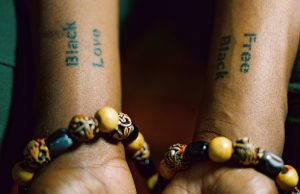Personal is Political: Should I Be Telling You This?
By Sarah Brent
 “If two people come together, who’ve never had any power except by the way of abuse, it’s going to be bad. Both of us had power exerted over us as children. I eventually learned that as an adult, I was still doing the dance, seeking out abusive relationships. That doesn’t mean it was my fault. But I played a role. And your father was abused by his father and as an adult he became a rage-aholic, exerting power over others.”
“If two people come together, who’ve never had any power except by the way of abuse, it’s going to be bad. Both of us had power exerted over us as children. I eventually learned that as an adult, I was still doing the dance, seeking out abusive relationships. That doesn’t mean it was my fault. But I played a role. And your father was abused by his father and as an adult he became a rage-aholic, exerting power over others.”
“Should you be telling me these things?”
It was getting late and my mother and I have been lounging in my bedroom. As our muddy shoes dried in the bathtub, we simply sat. We were decompressing from an all-day event that was my grandfather’s funeral. Stressed and exhausted, after all we spent much of the day comforting my father as he cried in church, there was much on her mind
Though my parents have been divorced for twenty-five years my mother had maintained close ties with my father’s extended family. She cried. She’s a devout Christian who respects rituals. But something about the service and the burial closed a final chapter for her. She loved my father’s family – in part because her own family was so messed up. She would tell me that this love precluded her from telling me about their problems until many years later. She had always been open about everything else
My mother has no issues discussing her history with abuse, incest and rape. By the time she was 17, she’d been raped by her nephew, nearly died from an illegal abortion, and had attempted suicide twice. She then met my father, ten years her senior. They were together nine years before getting married. She was already pregnant with me and while she didn’t want to marry him she relented. When I ask her why she did anyway she tells me, quite matter-of-factly, that she did it so that I would have his name.
Love was never at the foundation of their relationship. It would never be a story of love; nor was it a lifetime of hate. It was always a story about power.
For years, I’d known that my father abused my mother physically, verbally, psychologically, and sexually. Throughout childhood, my mother had weaved her own stories of abuse into her parenting, into the stories and lessons she gave me. I have faint memories of her talking to me about a rape and how, in the early 1980s, it was still legal for a husband to rape his wife in some states.
Fast forward to the day of the funeral, sitting in my room, our conversation turned to how she left my father; she clearly needed to tell me about how this chapter in her life ended.
By the fifth year of their marriage, when I was four years old, she’d started sleeping in another room. And that’s when her husband, my father raped her.
When she first tells me this, I don’t have much of a reaction. Like I said, I knew that he’d raped her. But something was different. That night, sometimes laughing, sometimes crying, she described that, in hindsight, there were multiple rapes in their marriage “but,” she explains, “… it was more like he wanted to and I didn’t but I’d just acquiesce. But this night I’d said ‘NO’, this time it was a violent thing.”
She was asleep when he came in, grabbed her and dragged her into their bedroom. As they struggled she asked him why would he even want to have sex with someone who didn’t want him. He told her he’d fuck anything in his bed.
“Should you be telling me these things?” I asked her after that.
The next five minutes consisted of her backtracking and my apologizing and us reaching a compromise that maybe she could only tell me the big parts and not the smaller parts.
“As if there’s some scale of importance in a rape,” I quipped, feeling utterly shameful for asking her to be sensitive when describing her sexual assault.
The thing is, my mother started telling me about her sexual abuse since I was 16 years old, beginning with the story of her illegal abortion. Later, when she told my father that she’d told me, he criticized her for sharing about her “sordid past.”
So it was not a fear of learning more details about this particular story. I interrupted because I was afraid. And it’s taken me awhile to articulate just what it is I’m actually afraid of. I’m not afraid for her, but I’m afraid for myself and, yes, for my father. I am afraid for the rest of us – afraid because this is not my story and yet it is my story.
And isn’t there violence to it being my story? We carry ourselves in such a way based on what we know and what we know is, in part, what we are told. So it is inherently violent – rupturing – when we are told something that must now become another part of us. So, I am afraid because I don’t know how to carry this as part of my own flesh.
This fear reminds me that this is not my story, it is hers; it is my mother’s story.
And I bear witness as I have from the day I was born. It’s just that this feels heavier not because I think it’s inappropriate, but because I am afraid.
My father is no demon, no monster. I can count on one hand the number of times, when growing up, that my mother spoke in an inappropriate manner about him in front of me. I have a relationship with my father. This did not change as I learned more and more about the abuse.
One time I asked her why she hadn’t left then as she’d originally planned, but left five years later. Her response: “He fell in love with you and for that first year we were happy. We had our happy moments.”
The night of the funeral she would tell me more about their marriage, about the violence, and about her decision to leave him after the rape.
After he raped her, he kicked her out of the bed – literally, with his foot – and she went back to her room. The next day she called the sheriff’s department and after telling them what happened she was told, “Ma’am, it’s not a crime to have sex with your wife.”
“I remember feeling like shit because I’d just been raped and then they’re telling me it wasn’t rape because he’s my husband.”
________________________________________________________
Sarah Brent is a pseudonym.




4 Comments